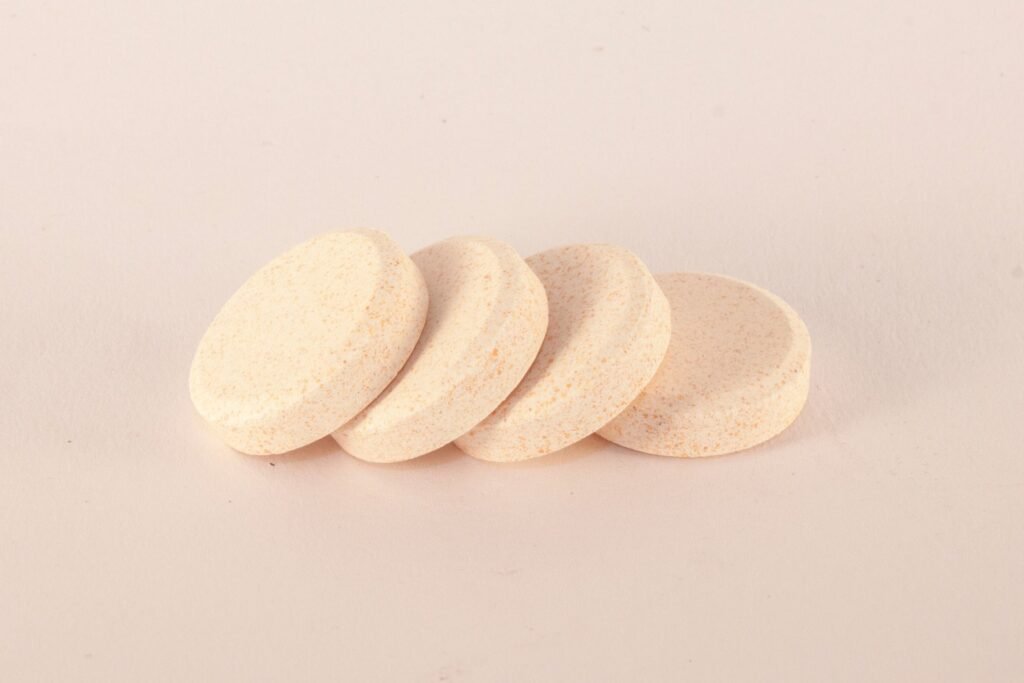Table of Contents
Did you know that zinc can be a powerful ally in the fight against diarrhea? That’s right! This essential mineral plays a crucial role in maintaining gut health and preventing those dreaded digestive woes. Let’s explore the amazing benefits of zinc for diarrhea and discover how it can help you get back on track.
Brief The Article:
Diarrhea and Zinc Deficiency: A Deadly Connection
- Diarrhea is a major health concern, especially for children under 5, with zinc deficiency being a significant contributor to diarrhea-related deaths.
Causes of Zinc Deficiency:
- Insufficient dietary intake of zinc, particularly among those who don’t consume animal products.
- Consumption of foods high in phytates (phytic acid), found in grains, which block zinc absorption.
Zinc for Diarrhea: Three Main Purposes
- Restoring Gut Barrier Integrity: Zinc helps maintain the integrity of the gut lining, preventing harmful bacteria from entering the body and triggering immune reactions that lead to diarrhea.
- Supporting Enzyme Activity: Zinc is essential for the production of digestive enzymes in the small intestine. Without enough zinc, food isn’t properly digested, contributing to diarrhea.
- Strengthening Antibody Response: Zinc is crucial for antibody production, which helps fight off pathogens. A weakened antibody response due to zinc deficiency can lead to infections and diarrhea.
Addressing Chronic Diarrhea with Zinc
- Zinc supplementation is highly recommended for individuals with chronic diarrhea, as it can significantly improve digestive health.
Other Remedies for Diarrhea
- Bentonite clay can help soothe the gut and reduce diarrhea.
- Kefir (unsweetened, whole fat) blended with blackberries can be beneficial for some, but those with lactose intolerance or casein allergy should avoid it.
Electrolytes and Trace Minerals: Replenishing Lost Nutrients
- Diarrhea can lead to the loss of electrolytes and trace minerals, which need to be replenished along with zinc supplementation.
Key Takeaway:
Zinc plays a vital role in preventing and treating diarrhea. Ensuring adequate zinc intake through diet or supplementation, alongside other remedies and electrolyte replenishment, is crucial for managing diarrhea and maintaining digestive health.
So let’s dive into the details…
Zinc for Diarrhea: A Serious Global Issue

Did you realize that over 500,000 children under the age of 5 die of diarrhea every single year? That completely blows my mind. Now this actually is coming from a zinc deficiency. Zinc for diarrhea is a critical consideration in addressing this global health issue.
- Shocking statistic:
- 500,000 children under 5 die annually from diarrhea
- Main cause: zinc deficiency
Two Main Causes of Zinc Deficiency

There are two main reasons why people are deficient in zinc:
- They don’t have enough in their diet. Most of the zinc in the diet comes from animal products, meat, organ meats as well as shellfish and seafood. So if you’re not consuming those foods or you’re a vegan, you could be deficient in zinc.
- They’re consuming foods that are high in something called phytates or phytic acid, which is in the fiber part of grains. Phytates block the absorption of zinc, and you’re just creating a zinc deficiency.

- Sources of dietary zinc:
- Animal products
- Meat
- Organ meats
- Shellfish
- Seafood
- Factors blocking zinc absorption:
- Phytates in grains
Three Main Purposes of Zinc in Preventing Diarrhea
Our bodies need zinc for many, many things, but there are three main purposes of zinc in relationship to preventing diarrhea. Zinc for diarrhea works in multiple ways:
- Zinc restores the mucosal barrier integrity of your intestines. If that gut barrier is broken down, you have what’s called translocation of bacteria into your body. So when you don’t have the barrier, certain microbes can cross through this immune barrier and create all sorts of immune reactions, which then your body is going to defend that with diarrhea.
- Zinc is intimately involved in the enzyme reactions within your small intestine. The lining of your small intestine actually makes enzymes, and you need zinc to make those enzymes to help you digest. So if you’re weak on the enzyme activity, things don’t get digested, thus the diarrhea.
- Zinc is really needed for your antibodies to fight off pathogens. If that’s not there, your defenses for these pathogens go down, and then you have this immune reaction.
- Zinc’s roles in preventing diarrhea:
- Restores mucosal barrier integrity
- Supports enzyme production in small intestine
- Enhances antibody production against pathogens
The bottom line is if you’re deficient in zinc, your risk for diarrhea goes up, and you have a lot of digestive issues.
So if you have chronic diarrhea, whether you’re a child or an adult, you need to be taking zinc. Zinc for diarrhea is an essential consideration for digestive health.
Other Remedies for Diarrhea

There’s some other things that you can take as well. Bentonite clay is another good remedy for diarrhea. In some other topics, I recommend kefir (unsweetened of course, whole fat) and blackberries blended together. Sometimes that can help as well.
But if you’re lactose intolerant, that’s not a good option. You may be able to find some lactose-free kefir, but your problem could also be an allergy to the casein in the dairy
so you’d probably want to avoid that. However, zinc for diarrhea is probably one of the most important things to take if you have diarrhea.
- Additional remedies for diarrhea:
- Bentonite clay
- Kefir (unsweetened, whole fat) blended with blackberries
- Lactose-free kefir (for lactose intolerant individuals)
Electrolytes and Trace Minerals: Essential for Recovery

Now the other problem with diarrhea is that when you have diarrhea, you lose your electrolytes and your trace minerals. So it’s not just about taking zinc back into the body, it’s about taking all the trace minerals and the electrolytes as well.
Zinc for diarrhea should be part of a comprehensive approach to replenishing lost nutrients.
- Nutrients lost during diarrhea:
- Electrolytes
- Trace minerals
All right, thank you for Reading. If you want to know more about zinc and its importance for your body’s health, go here. #ZINC
Summary
Did you realize that over 500,000 children under the age of five die from diarrhea every year? This could actually happen because of a zinc deficiency.
There are two main reasons why people are deficient in zinc:
- They don’t have enough zinc in their diet. Most zinc in the diet comes from animal products.
- They are consuming foods high in phytates or phytic acid, which is in the fiber part of grains. Phytates block the absorption of zinc.
The three main purposes of zinc in relation to preventing diarrhea:
- Zinc restores the mucosal barrier integrity of your intestines.
- Zinc is involved in the enzyme activity in intestinal cells.
- Zinc is needed for antibodies to fight off pathogens.
Other natural remedies for diarrhea other than zinc:
• Bentonite clay
• Kefir (unsweetened and whole-fat) and blackberries blended together
Another problem when it comes to diarrhea is that you lose your electrolytes and trace minerals. It may be beneficial to take trace minerals and electrolytes as well as zinc for diarrhea.
Additional-resources
FAQ
What is the importance of zinc for digestion?
Zinc plays a crucial role in digestion:
- Enzyme Production: Zinc is essential for producing digestive enzymes in the small intestine.
- Nutrient Absorption: It aids in the absorption of nutrients from food.
- Gut Barrier Integrity: Zinc helps maintain the mucosal barrier of the intestines.
- Appetite Regulation: It’s involved in regulating appetite and taste perception.
- Gut Microbiome: Zinc supports a healthy gut microbiome balance.
- Protein Synthesis: It’s necessary for the synthesis of proteins involved in digestion.
- Immune Function: Zinc enhances the gut’s immune defenses against pathogens.
Adequate zinc intake is crucial for optimal digestive health and function.
What is the role of zinc in the mechanism of diarrhea?
Zinc plays multiple roles in preventing and managing diarrhea:
- Mucosal Barrier Protection: Strengthens the intestinal lining, preventing bacterial translocation.
- Immune Response: Enhances the production of antibodies to fight pathogens.
- Water and Electrolyte Balance: Helps regulate fluid absorption in the intestines.
- Anti-inflammatory Action: Reduces inflammation in the gut.
- Enzyme Function: Supports the production of digestive enzymes.
- Antioxidant Properties: Protects intestinal cells from oxidative stress.
- Gut Motility: Helps regulate intestinal muscle contractions.
These mechanisms collectively contribute to zinc’s effectiveness in treating and preventing diarrhea.
WHO guidelines zinc diarrhea?
The World Health Organization (WHO) provides specific guidelines for zinc supplementation in diarrhea:
- Recommended for all children with diarrhea.
- Dosage: 10-20 mg of zinc per day for 10-14 days.
- Age-specific dosing: 10 mg for infants under 6 months, 20 mg for older children.
- Should be given along with Oral Rehydration Solution (ORS).
- Zinc supplementation reduces the duration and severity of diarrhea.
- It also prevents future episodes for 2-3 months.
- WHO recommends zinc supplementation as part of national diarrhea management programs.
These guidelines aim to reduce childhood mortality and morbidity from diarrheal diseases globally.
How does zinc deficiency cause diarrhea?
Zinc deficiency can lead to diarrhea through several mechanisms:
- Compromised Gut Barrier: Weakens the intestinal lining, allowing bacterial invasion.
- Reduced Enzyme Production: Impairs digestion due to insufficient digestive enzymes.
- Weakened Immune Response: Lowers the body’s ability to fight off pathogens.
- Altered Gut Microbiome: Disrupts the balance of beneficial gut bacteria.
- Impaired Water Absorption: Affects the intestine’s ability to absorb water efficiently.
- Increased Inflammation: Can lead to chronic inflammation in the gut.
- Decreased Gut Repair: Slows down the healing process of intestinal tissue.
Addressing zinc deficiency is crucial in preventing and managing chronic diarrhea.
Zinc for diarrhea in child
Zinc supplementation for children with diarrhea:
- Recommended by WHO for all children with diarrhea.
- Dosage: 10-20 mg daily for 10-14 days.
- Reduces duration and severity of diarrheal episodes.
- Decreases the risk of subsequent infections.
- Can be given as tablets, syrups, or dispersible tablets.
- Should be administered alongside oral rehydration therapy.
- Particularly beneficial in areas with high malnutrition rates.
Zinc supplementation is a cost-effective intervention for reducing childhood mortality from diarrhea.
Zinc tablets for diarrhea in adults
Zinc tablets can be effective for treating diarrhea in adults:
- Typical dosage: 25-50 mg of elemental zinc daily.
- Duration: Usually recommended for 10-14 days.
- Can help reduce the severity and duration of diarrhea.
- May be particularly beneficial for travelers’ diarrhea.
- Often combined with probiotics for enhanced effect.
- Can support immune function and gut health.
- Should be taken with food to minimize potential stomach upset.
Consult a healthcare provider for proper dosing and to rule out underlying conditions.
Zinc dosage for diarrhea in adults
Zinc dosage for diarrhea in adults typically follows these guidelines:
- Standard dose: 25-50 mg of elemental zinc daily.
- Duration: Usually for 10-14 days or as directed by a healthcare provider.
- Form: Zinc gluconate, zinc acetate, or zinc sulfate are common forms.
- Timing: Best taken with meals to reduce gastrointestinal side effects.
- Higher doses may be recommended in severe cases or malnutrition.
- Should not exceed 40 mg daily for long-term use without medical supervision.
- Effectiveness may vary based on individual factors and underlying causes of diarrhea.
Always consult a healthcare professional before starting any supplement regimen.
Zinc for diarrhea dosage
Zinc dosage for diarrhea varies based on age and severity:
- Infants under 6 months: 10 mg daily for 10-14 days.
- Children 6 months and older: 20 mg daily for 10-14 days.
- Adults: 25-50 mg daily for 10-14 days.
- Severe cases: Up to 100 mg daily under medical supervision.
- Preventive dosage: 10-15 mg daily in high-risk populations.
- Should be taken with or shortly after meals.
- Always follow healthcare provider’s recommendations for individual cases.
Proper dosing is crucial for effectiveness and to avoid potential side effects.
Zinc dosage for child diarrhea
Zinc dosage for child diarrhea follows WHO guidelines:
- Infants under 6 months: 10 mg of elemental zinc daily for 10-14 days.
- Children 6 months and older: 20 mg of elemental zinc daily for 10-14 days.
- Can be given as tablets, syrups, or dispersible tablets.
- Should be administered alongside oral rehydration therapy.
- Continue zinc supplementation for the full course, even if diarrhea stops.
- May reduce the duration of diarrhea by about 25%.
- Can prevent future episodes for up to 3 months.
Always consult a pediatrician before administering zinc supplements to children.
Zinc in diarrhea mechanism of action
Zinc’s mechanism of action in treating diarrhea involves multiple pathways:
- Enhances Water and Electrolyte Absorption: Improves intestinal absorption of water and electrolytes.
- Strengthens Tight Junctions: Reinforces the connections between intestinal cells, reducing permeability.
- Boosts Immune Response: Enhances the production and function of immune cells in the gut.
- Regulates Ion Channels: Affects ion transport across cell membranes, influencing fluid balance.
- Antioxidant Effects: Protects intestinal cells from oxidative damage.
- Modulates Inflammatory Response: Reduces excessive inflammation in the gut.
- Supports Enterocyte Regeneration: Aids in the repair and regeneration of intestinal cells.
These actions collectively contribute to reducing the duration and severity of diarrheal episodes.
Role of zinc in diarrhoea
Zinc plays multiple crucial roles in managing diarrhea:
- Immune System Support: Enhances the body’s ability to fight off pathogens causing diarrhea.
- Intestinal Barrier Function: Strengthens the gut lining, preventing bacterial translocation.
- Enzymatic Activity: Supports the production of digestive enzymes for proper nutrient absorption.
- Water and Electrolyte Balance: Helps regulate fluid absorption in the intestines.
- Anti-inflammatory Properties: Reduces gut inflammation associated with diarrhea.
- Gut Microbiome Regulation: Supports a healthy balance of gut bacteria.
- Cell Regeneration: Aids in the repair and regeneration of damaged intestinal cells.
These multifaceted roles make zinc a crucial element in both treating and preventing diarrhea.
Zinc sulphate in diarrhoea for babies
Zinc sulphate is commonly used to treat diarrhea in babies:
- Dosage: 10 mg daily for infants under 6 months, 20 mg for older infants and children.
- Duration: Typically given for 10-14 days.
- Form: Often available as dispersible tablets or syrup for easy administration.
- Effectiveness: Can reduce the duration and severity of diarrhea episodes.
- Prevention: May prevent future episodes for up to 3 months.
- Safety: Generally well-tolerated but should be given under medical supervision.
- Administration: Best given with or after meals to minimize potential stomach upset.




